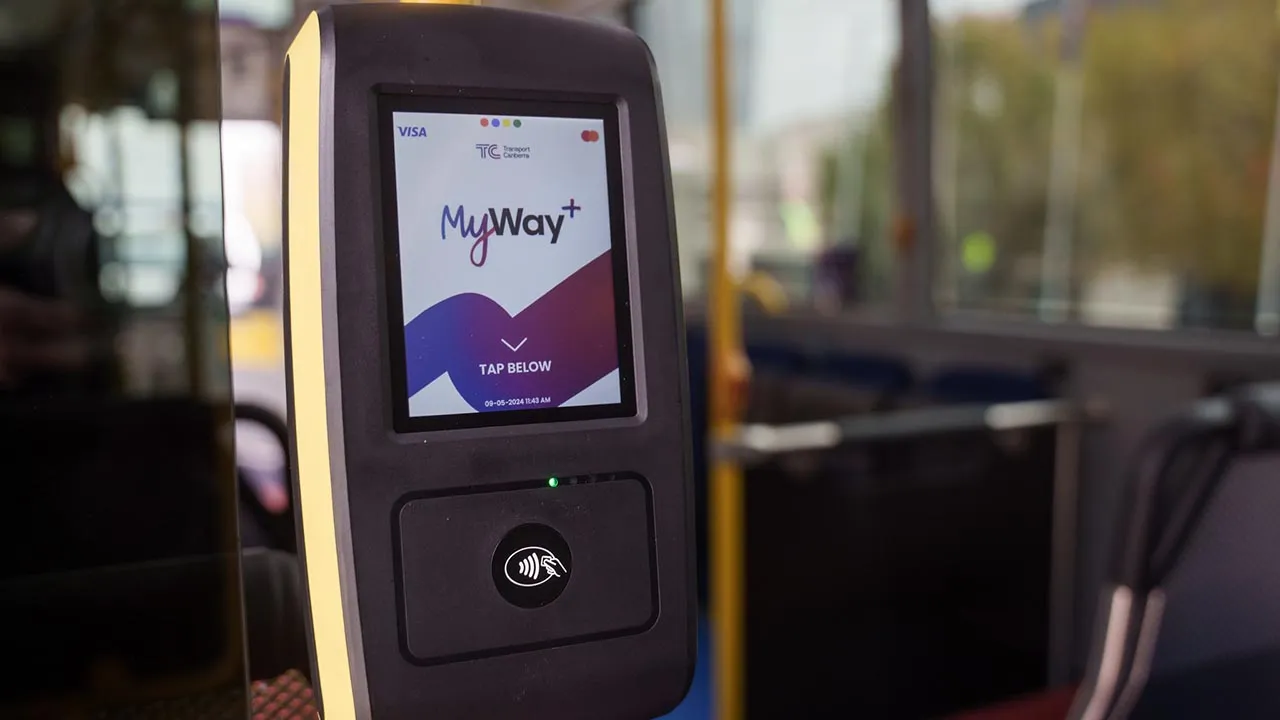
A new public transport ticketing system is going live in the Australian Capital Territory (ACT) next week, replacing the old MyWay system.
MyWay+ will allow people to plan and pay for multimodal journeys in ACT, which includes Australia's capital city, Canberra.
It begins on Wednesday 27 November following several months of system and user testing; new equipment has been installed on buses and at bus and light rail platforms and interchanges.
Passengers don't need to have an account: they can also use a credit card, debit card, Apple or Google Pay on their mobile phone to tap on and off.
Via an app and online portal, users can check accessibility options and receive personalised messages for bus and light rail services.
They can also purchase a physical MyWay+ travel card (including concession travel cards) from retail outlets.
ACT Government says there will be system improvements to both the MyWay+ account and app over the coming months, based on user feedback "as well as planned future software and system updates designed to enhance the user experience and meet the needs of Canberrans".
Customer service representatives will be located at major bus and light rail stops over the coming weeks as well as attending community events.










